Dnipro Mechnikov Hospital, a place where people are brought back to life
❗️SENSITIVE CONTENT❗️

Mechnikov Dnipro Regional Clinical Hospital is the largest medical facility in eastern Ukraine providing surgical and stabilization care. It welcomes critically wounded soldiers from all over the frontline. Since 2022, the hospital has treated 28,000 troops.
The wounded are evacuated from Dnipropetrovsk, Donetsk, Zaporizhzhia, Kharkiv, and Kherson regions [where the toughest battles are taking place]. Helicopters deliver some most severely injured soldiers. Every morning, a line of evacuation and emergency vehicles forms here.

Soldiers are admitted to the hospital in critical condition. Serhii Ryzhenko, the facility’s chief, says that 82% of patients couldn’t even spell out their names and say “mom.” The troops are literally born again within the hospital’s walls.
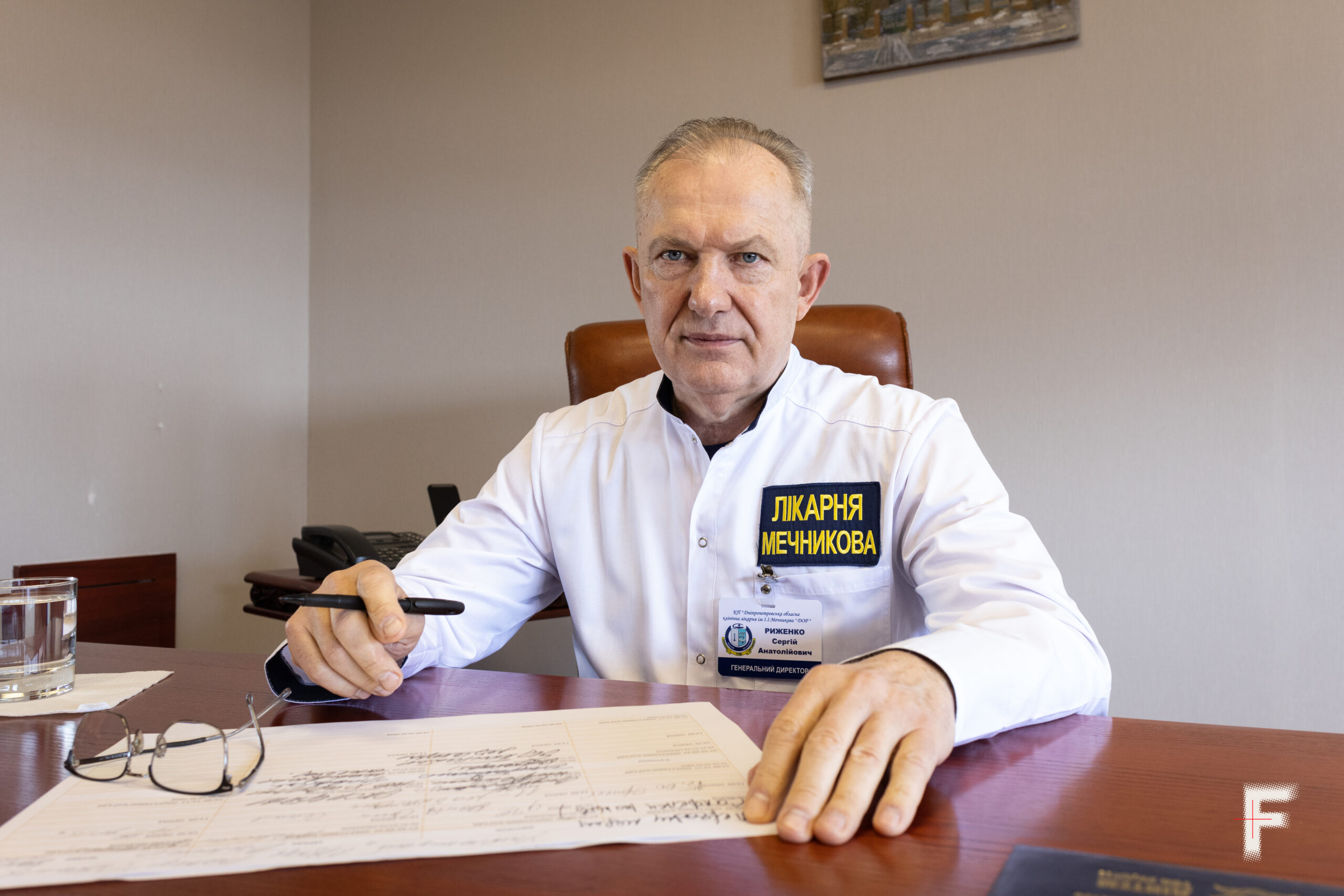
Here, in the intensive care unit, hospital workers take emergency measures to save lives. Patients are provided with lung ventilation and heart resuscitation, assisted with critical bleeding, and prepared for surgery.
After emergency treatment, 95% of wounded soldiers survive. Patients spend 3 to 6 days in the hospital and then are sent to other cities.
The hospital’s capacity is too low to meet the mounting flow of casualties. Patients are placed in resident rooms, doctors’ offices, and training rooms. The hospital also houses civilians, who make up 8% of the total number of wounded patients.
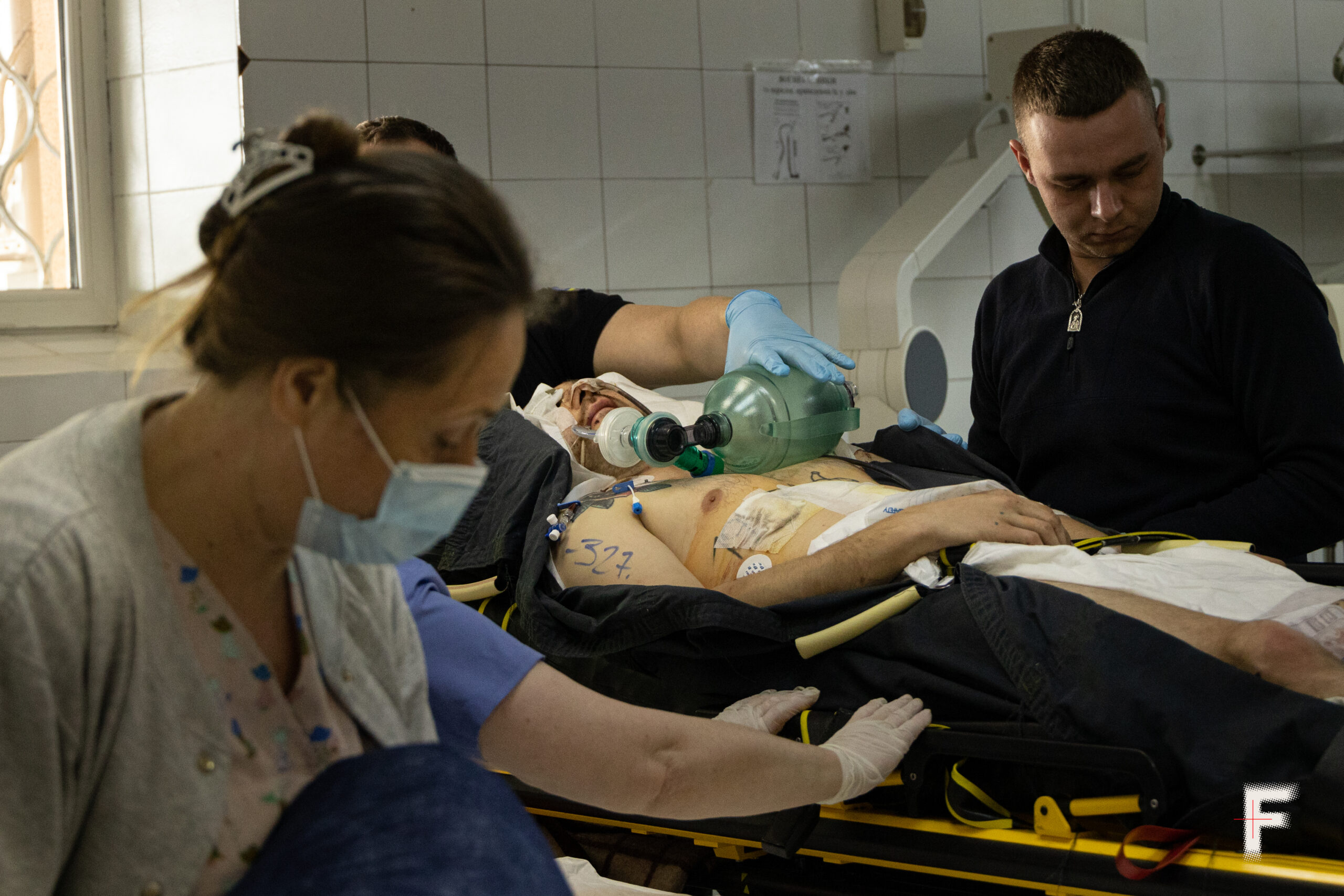
Since 2022, the Mechnikov Hospital has performed 32,500 surgical operations and transfused 16,000 tons of blood. On average, the medical institution performs 50-100 such operations per day.
“The hospital performs the largest number of neurosurgical brain operations in the world. American and Australian specialists come to Dnipro for training to gain experience in performing unique operations after severe injuries,” Serhii Ryzhenko said.
Behind the scenes of operating rooms
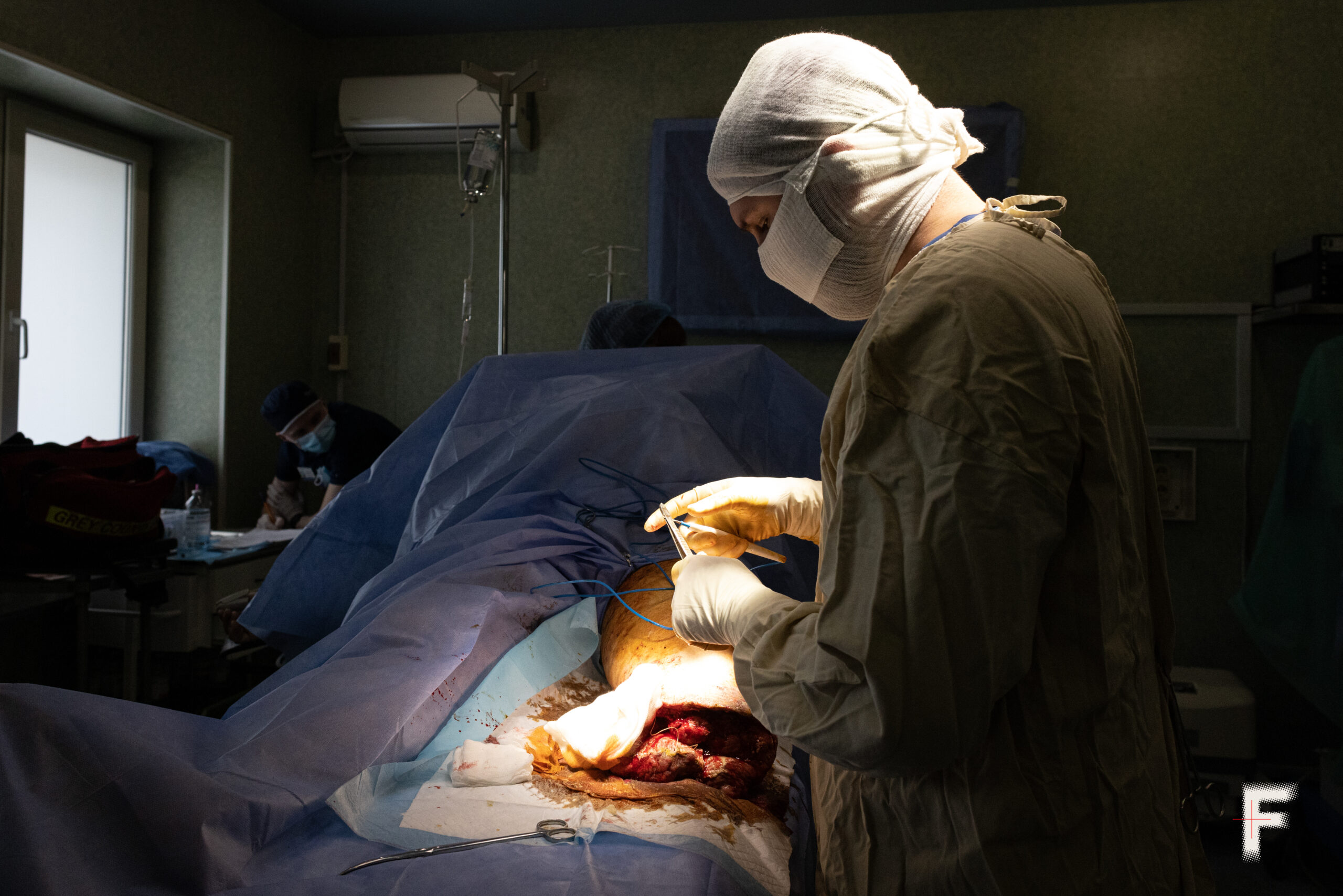
The hospital has over 50 operating rooms and about 200 surgeons. Sometimes operations last for 10 hours in a row, and doctors sometimes sleep at their workplaces at night.
Dealing with numerous shrapnel wounds, doctors perform a lot of limb amputations, doing their best to preserve basic body functioning. Yet, it is not always possible.
After the surgery, there is mandatory psychological rehabilitation so that a patient gets used to living in a new body and finds the strength to move on.
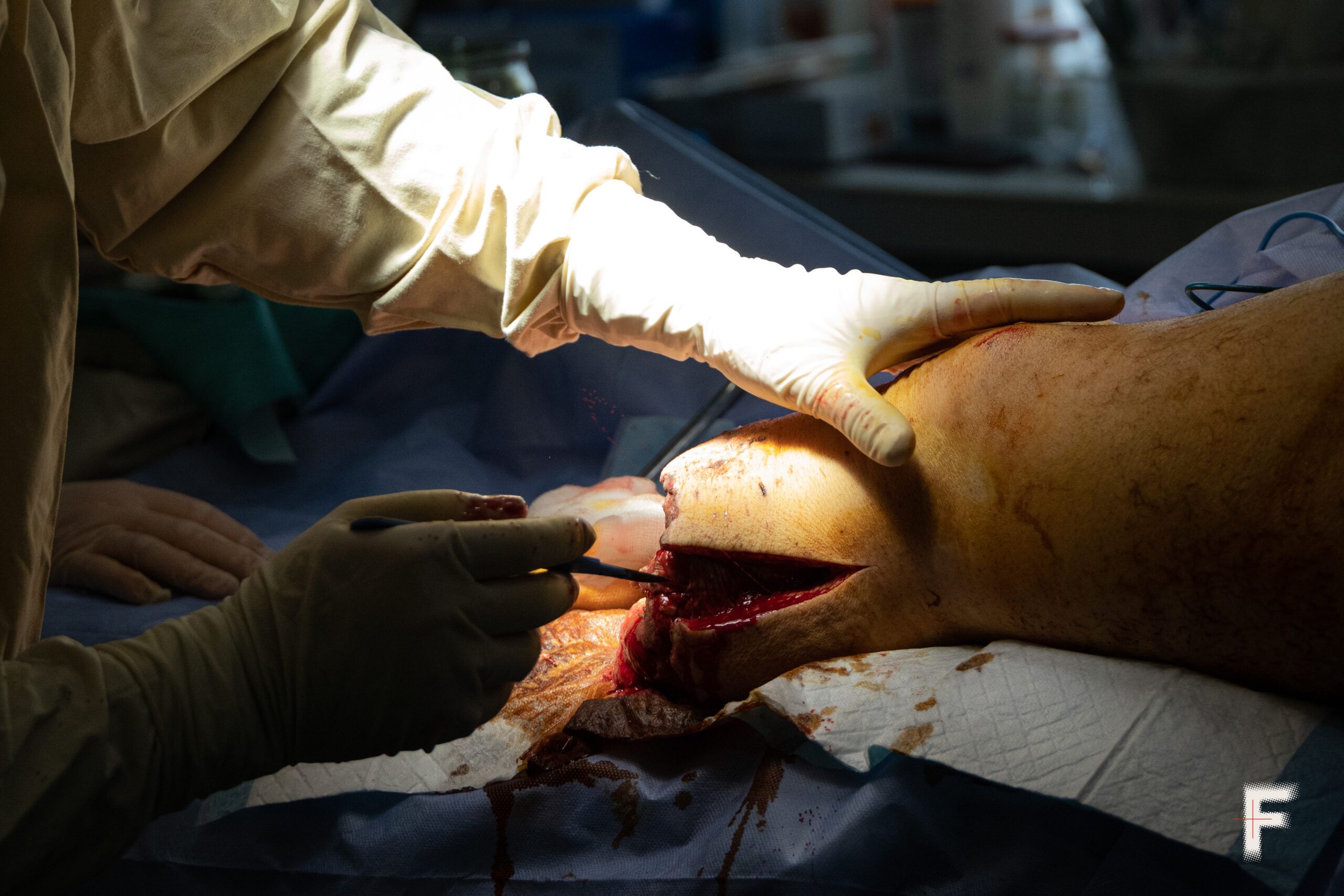
Soldiers in tough conditions are resting in postoperative wards. Some of them suffered from burns so severe that even their families couldn’t recognize them.
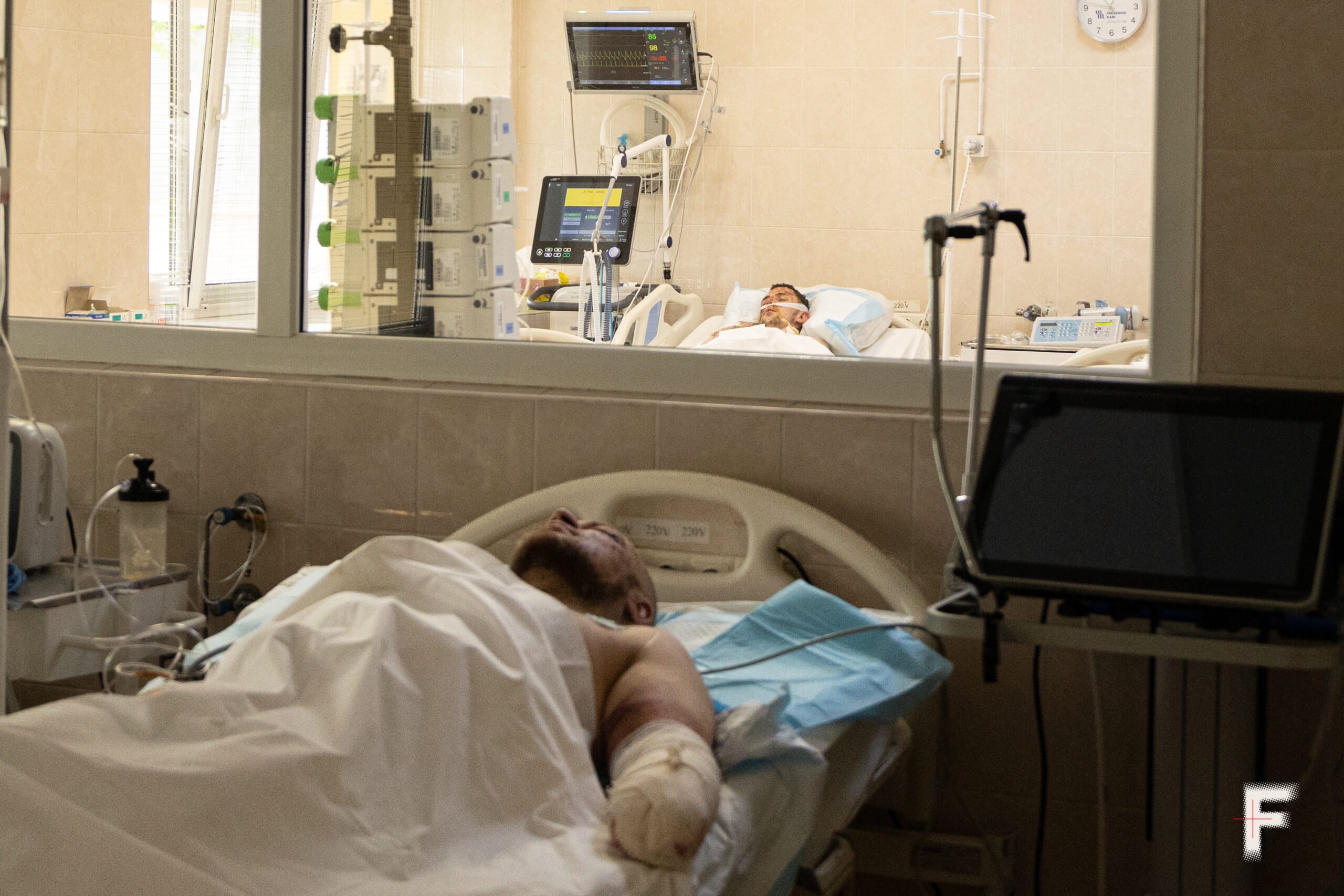
Andrii Sikanovych, a National Guard soldier, is undergoing treatment after receiving wounds near Robotyne, [a southern town that used to be the epicenter of the 2023 counteroffensive]. The 22-year-old fighter suffered burns to his face and hands, severe wounds to his chest, abdomen, left lung, stomach, and shrapnel injuries to his limbs.
“I feel constant pain with every movement. I can’t even eat. Due to the stomach injury, I can only eat intravenously,” Andrii said.
Despite his worrying condition, the fighter remains optimistic, feeling really supported by his family from the western Ternopil region, so he can’t give up.
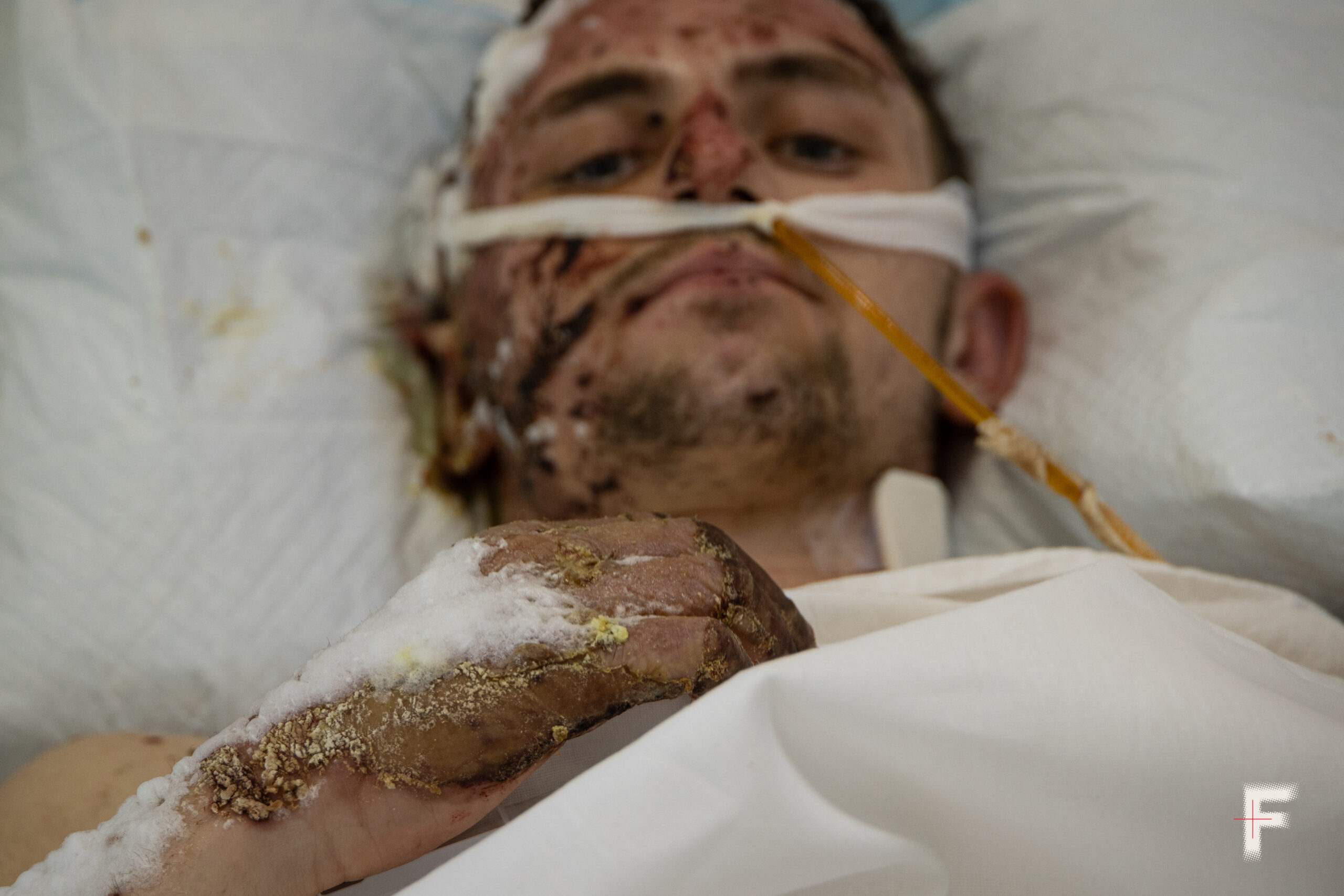
Oleksandr Fedorets, the anti-tank platoon staff sergeant, was wounded in the eastern Serebryanskyi Forest. He’s been through amputation of his left forearm at the Mechnikov Hospital. The 36-year-old soldier suffered shrapnel wounds to his face, and sustained eye injuries. Despite feeling bad, he is comforted by his arm being amputated below the elbow joint. He has a chance to not become a burden to his family.
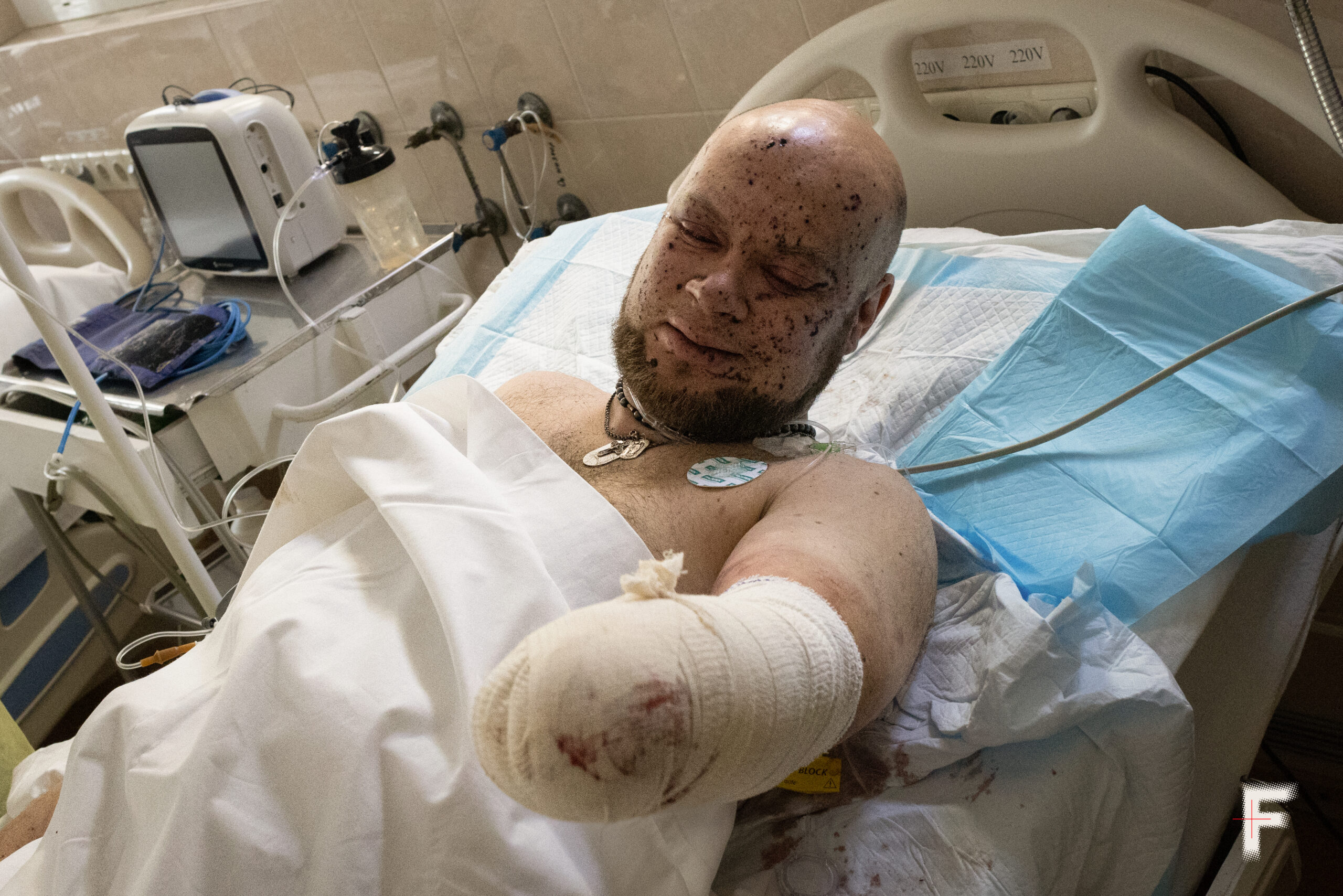
Despite severe physical and psychological issues, Oleksandr keeps believing in Ukraine’s victory.
“Victory is not about reaching some borders. It’s about preventing my son from going to war with Russia in the future, just like me. For me, victory means that there will be no more war in the future,” he said.
Rehabilitation center
Recently, the hospital has opened a rehabilitation unit, which can accommodate over a thousand soldiers per year. The wounded are undergoing neurophysical rehabilitation, preparing for switching to prosthetics, and training with doctors and world Paralympic champions.
22-year-old Viktor Moiseenko is undergoing rehabilitation after a traumatic amputation of his right leg above the knee. He served as a combat medic in a fire support company, evacuating the wounded. During the mission, an enemy drone hit the group, nearly killing the soldier. Viktor has been through over 10 surgeries, but the doctors couldn’t save his limb.
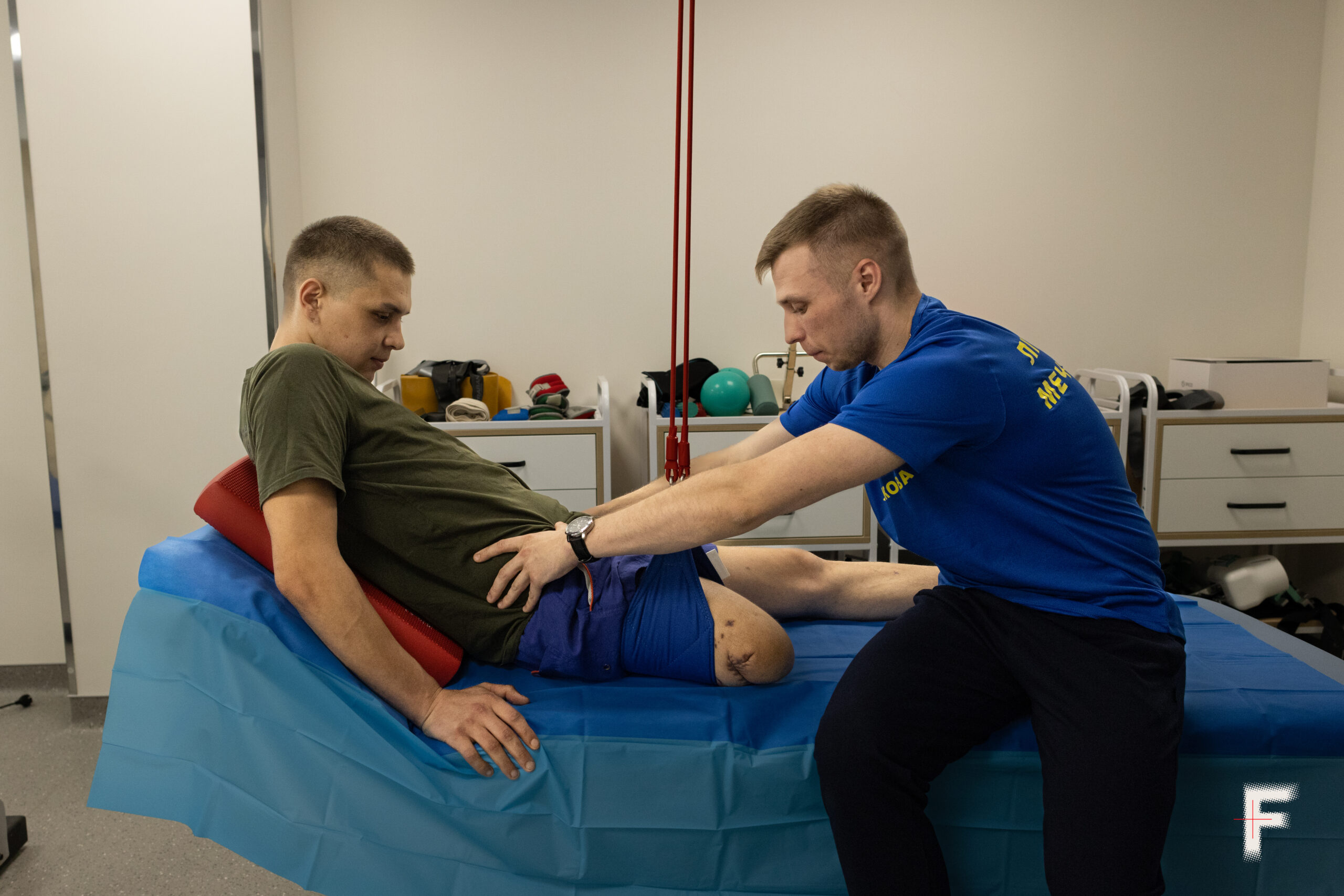
“The hardest thing for me after being wounded was to find out that my friend Sasha was not rescued. Sanya evacuated over 500 wounded, so we are making efforts to have him posthumously awarded the title of Hero of Ukraine,” Viktor said. He is smiling, feeling very determined. After receiving a prosthesis, he decided to return to service to bring victory closer.
The rehabilitation center is planning to open swimming pools for the wounded and prosthetics laboratories so that troops can receive the full range of services in one place. The hospital also provides free accommodation and psychological support to relatives. The management recognizes the importance of families staying side by side with the wounded and helping them cope with all the difficulties of post-war life.
Text: Olha Kurshevska; Photo: Danylo Dubchak
